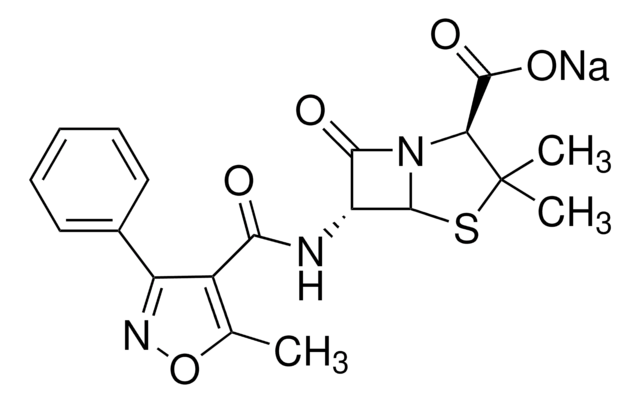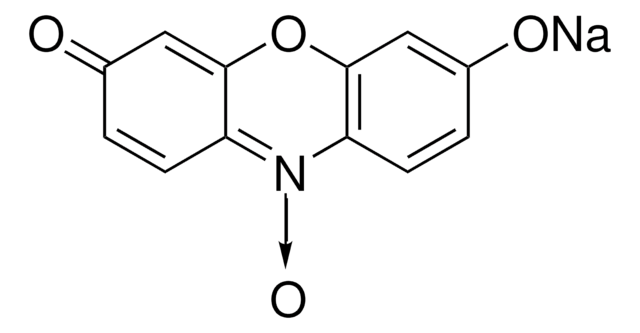P5280
Sodium pyruvate
powder, BioReagent, suitable for cell culture, suitable for insect cell culture, ≥99%
Synonym(s):
α-Ketopropionic acid sodium salt, 2-Oxopropanoic acid sodium salt, Pyruvic acid sodium salt
About This Item
Recommended Products
product line
BioReagent
Quality Level
Assay
≥99%
form
powder
technique(s)
cell culture | insect: suitable
cell culture | mammalian: suitable
mp
>300 °C (lit.)
solubility
H2O: 100 mg/mL
density
1.78 at 20 °C
application(s)
metabolomics
storage temp.
2-8°C
SMILES string
[Na+].CC(=O)C([O-])=O
InChI
1S/C3H4O3.Na/c1-2(4)3(5)6;/h1H3,(H,5,6);/q;+1/p-1
InChI key
DAEPDZWVDSPTHF-UHFFFAOYSA-M
Looking for similar products? Visit Product Comparison Guide
General description
Application
- to culture MCF7 ρ0 (human breast cancer cell line) cells as parent cells
- as a supplement in extracellular flux (XF) assay media to incubate cells for measuring oxygen consumption rate (OCR)
- as a supplement in minimum essential medium Eagle to maintain breast cancer (MCF-7) cells
- as a supplement in Dulbecco′s modified Eagle medium (DMEM)-based medium and modified Eagle medium (MEM)-α for testis cell culture to evaluate the effect of medium composition on in vitro SSC maintenance
Biochem/physiol Actions
Features and Benefits
- Cell culture and insect cell culture tested
- Versatile and adaptable for a wide variety of laboratory and research applications
- BioReagent Grade Sodium succinate for your Cell Biology and Biochemical research
- Tested for Mammalian and Insect cell culture applications
Other Notes
comparable product
related product
Signal Word
Warning
Hazard Statements
Precautionary Statements
Hazard Classifications
Eye Irrit. 2 - Skin Sens. 1B
Storage Class Code
13 - Non Combustible Solids
WGK
WGK 1
Flash Point(F)
Not applicable
Flash Point(C)
Not applicable
Personal Protective Equipment
Certificates of Analysis (COA)
Search for Certificates of Analysis (COA) by entering the products Lot/Batch Number. Lot and Batch Numbers can be found on a product’s label following the words ‘Lot’ or ‘Batch’.
Already Own This Product?
Find documentation for the products that you have recently purchased in the Document Library.
Customers Also Viewed
Articles
We presents an article about the Warburg effect, and how it is the enhanced conversion of glucose to lactate observed in tumor cells, even in the presence of normal levels of oxygen. Otto Heinrich Warburg demonstrated in 1924 that cancer cells show an increased dependence on glycolysis to meet their energy needs, regardless of whether they were well-oxygenated or not.
Information on fatty acid synthesis and metabolism in cancer cells. Learn how proliferatively active cells require fatty acids for functions such as membrane generation, protein modification, and bioenergetic requirements. These fatty acids are derived either from dietary sources or are synthesized by the cell.
Protocols
This protocol describes a method for culturing TS cell lines. These cells can then be used to study trophoblast differentiation and placental function.
Our team of scientists has experience in all areas of research including Life Science, Material Science, Chemical Synthesis, Chromatography, Analytical and many others.
Contact Technical Service









